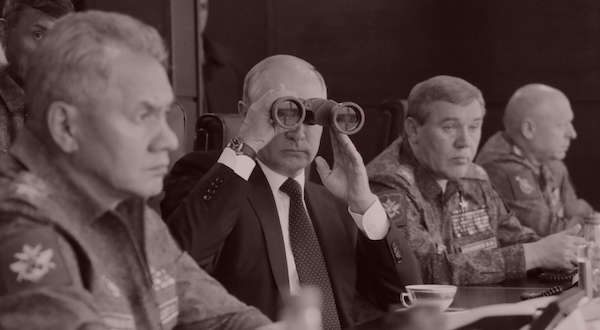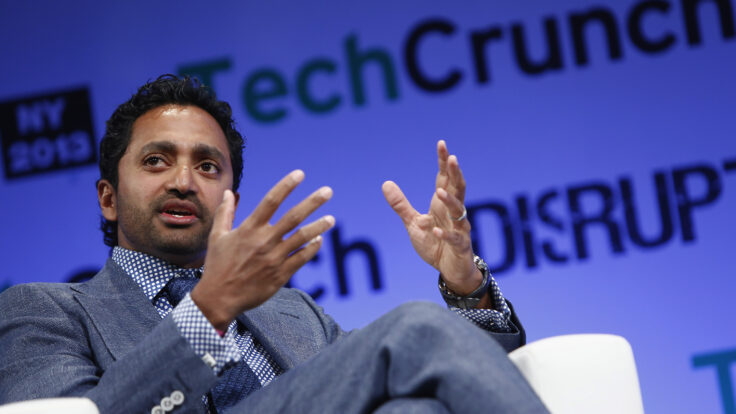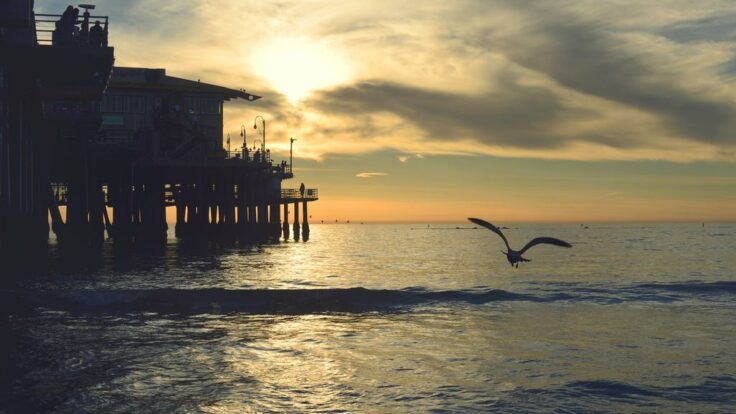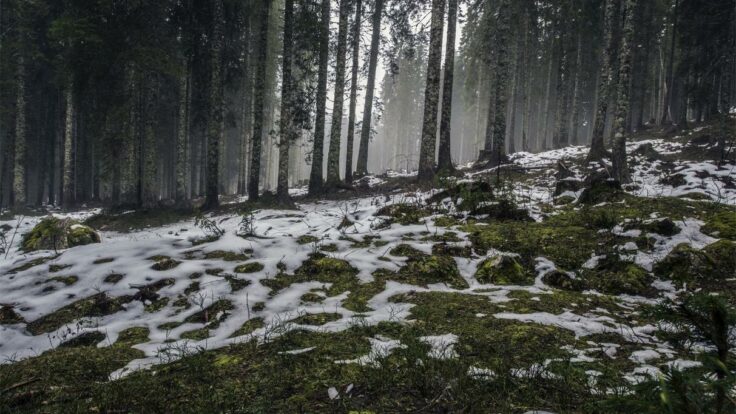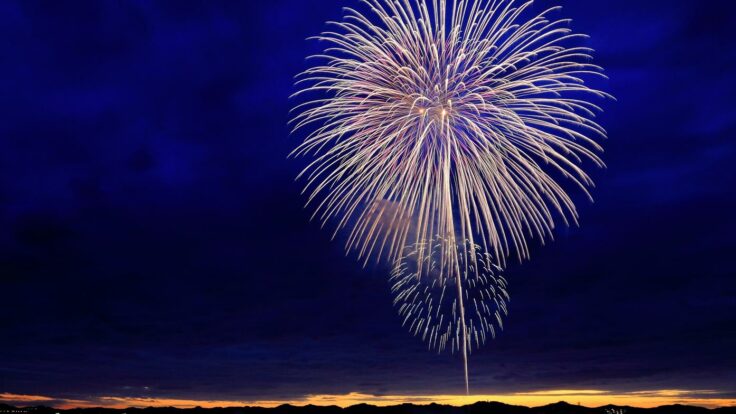|
Hello, and welcome back to Tomorrow Will Be Worse, my regular dispatch from Washington.
Last week, I shared five thoughts about the Russia-Ukraine crisis, featuring my own analysis (and best guesses) regarding Putin’s recent military-diplomatic posturing, my skepticism about sanctions, and how ethnic Russians generally view the West. As I noted then, when sanctions immiserate the average Russian, the average Russian is more likely to rally around the Russian flag than to embrace the West. It’s a mistake that Washington has made repeatedly over the decades: You can’t understand the rest of the world by simply projecting the American mindset onto it.
With that in mind, I recently reached out to an old acquaintance, Dr. Andrey Sushentsov, a prominent Russian political scientist, for the Russian view on Ukraine. You won’t be surprised to learn that the current crisis looks entirely different from the Kremlin’s perspective. You may not agree with Sushentsov about everything—I certainly don’t—but our conversation was fascinating and, I hope, enlightening.
A candid conversation with Dr. Andrey Sushentsov, a prominent Russian political scientist, about how Putin views the West—and what the Ukraine crisis is really about. I first met Dr. Andrey Sushentsov in Moscow back in 2017. It was slushy and gray outside, one of those days when you can’t tell if it’s February or December, when spring seems like an impossible dream because it feels like it has only ever been winter. Sushentsov invited me to meet with him in a sleek co-working space in a renovated neoclassical building sandwiched between Lubyanka Square, where the FSB has its headquarters, and the neighborhood just outside the Red Square where all kinds of government ministries and departments have their offices—the corner of Moscow that is most like Washington, D.C.
We sat on velvet couches, drinking hot tea and talking about Russia’s place in the world order, and the kinds of classes that Sushentsov teaches at MGIMO, the elite university affiliated with the Russian Foreign Ministry that trains future Russian diplomats. Sushentsov, himself a graduate of the school, was different from most people I’d ever interviewed about Russian foreign policy. Compared to them, he was quite young—my age, I later realized—and quite reasonable. Unlike the foreign policy discussion on Russian state television, there was no yelling, no cursing, no insanely inappropriate analogies. Sushentsov was clear and precise in explaining the Kremlin’s geopolitical strategy, and even the nationalism woven through his views seemed as understandable as the American nationalism I heard back in Washington. Sushentsov represented the new generation of Russian foreign policy thinkers and practitioners. Young, modern, globally-minded, and far more elegantly dressed than their Washington counterparts.
In the years since we first met, Sushentsov has quickly risen through the ranks of Russia’s insular world of foreign policy. Today, he is the Dean of the prestigious School of International Relations at MGIMO and program director at the Valdai Club, the exclusive foreign policy conference where Vladimir Putin has often made news talking to interlocutors from abroad. I have frequently disagreed with Sushentsov’s point of view—I don’t, for example, agree that Ukraine has to justify its independence or that the United States and Russia have the right to carve up Europe into spheres of influence again—but have always appreciated his willingness to clearly and candidly articulate the perspective of the Kremlin as it views the West, as opposed to the often myopic, orientalist rhetoric that passes for smart analysis on American cable news.
As the current crisis in Ukraine, now in its third month, grinds on, I have found myself massively frustrated by most U.S. media coverage. So much of what I’ve been reading and hearing here in Washington reflects only the calculus of Washington, Brussels, and Kyiv. No wonder that what Putin wants and what Moscow is doing seem so utterly incomprehensible and mysterious to Americans. Putin may as well be some wizard behind a velvet curtain and our only way to understand him is by asking the same question, over and over again, of a Magic 8 ball.
So I decided to give Sushentsov a call and have him do what I had grown so tired of doing: explain Russia’s endgame for this crisis, as viewed from Russia itself. Here is our conversation, which took place last week, translated, edited and condensed for clarity.
What does this crisis look like from Moscow?
From the point of view of Moscow, what’s happening now is a fairly predictable turn of events. The starting point of this crisis is that the dialogue about European security has reached a dead end and the dialogue has turned into this one-sided, offensive pressure on Russia from the U.S. and NATO. The United States have taken on the maximalist stances of the countries that neighbor Russia, such as the Baltic states, Ukraine, or Poland. Which is to say that different countries in NATO feel the threat from Russia differently; say Lithuania versus Portugal, or Estonia versus France. And instead of listening to, say, Portugal or France, the U.S. is listening more to Estonia and Lithuania. And now it’s as if the U.S. sees no other issues in European security other than, say, Estonia’s complaints against Moscow. Russia is trying to point out that this logic is both incorrect and unfair, so Moscow is taking this American logic—or Lithuanian or Polish logic—and flipping the logic on its head: If you think the only threat to European security is us, well, we agree, except we think the problem is you, not us.
Vladimir Putin, in his press conference with Hungarian president Viktor Orban earlier this month, said that everyone knows that, at the end of the Cold War, Russia was promised that NATO won’t expand. But there was no written guarantee and there wasn’t even a verbal one. Mikhail Gorbachev himself later said that no such promise was made to him. So what exactly is Putin referring to?
Some historical research—some of it done by Western historians, by the way—says that there was a transcript that can be construed to be a verbal promise, where Western leaders are telling Gorbachev that we’re entering a new era and we cannot imagine that NATO and Russia would ever become enemies, and he then takes it at face value.
Right, but Putin interpreting this as a promise that was then broken is a bit of a stretch, no? Because there was no guarantee made.
But he and Russian diplomats always add that even if there were a formal, written guarantee, the West would still have violated it, because they’re constantly violating everything. I think it’s better to interpret this differently. Maybe this will sound too academic, but our countries live in different temporal categories. Time, in terms of geopolitics, is structured differently for our respective countries. Time in Western geopolitics is tied to internal electoral cycles, and the current administration in Washington is not necessarily bound by what the last administration did. For Russia, geopolitical time is measured in epochs. (And I don’t think this is the case just for Russia. I think China and Iran, and maybe India, see things similarly.)
These epochs are measured by certain events, sometimes wars, sometimes missile treaties. The epoch after the end of World War II was founded on several formal and informal agreements, like the division of spheres of influence. Some of it was agreed to verbally and was never put on paper, though it exists in the transcripts of those meetings. For Russia, these epochs are very clear, but Western elites are now saying, you know, those were crazy times, who knows what anyone said back then. It seems like they see what happened in the early 1990s as a time when words didn’t have much weight because the West “won” the Cold War, so they figured, no matter what we tell the Russians now, we’ll decide later if we’ll abide by it. There was an instance when, in the mid-1990s, somebody asked [Bill Clinton’s national security advisor] Anthony Lake, Why are you pushing to expand NATO? Is this really such an important priority? And you know that the Russians will be against this and, with time, they’ll be forced to respond. And he said, essentially, We’ll deal with this issue when it comes up. So this is a postponed crisis.
And now here it is.
Actually, I think it’s a little late, though it was inevitable that it would come. Putin started saying this a few years ago, when someone asked him what Russia’s biggest mistake was when it came to the West. And he said, Our biggest mistake was that it took us too long to start insisting that our interests be taken seriously. For too long, we expected that dialogue was possible and that we would be heard. Which is why, yes, this is a crisis that has been delayed.
To come back to my first question: I see in Russian state media this idea that what Ukraine and the Baltic states are doing is not following their own interests or their own foreign policy, but that they are simply being forced to do this by the United States. The implication is that smaller countries are always puppets of the larger powers. To what extent do you think this actually reflects the thinking inside the Kremlin?
Small countries are afraid of the big countries that are their neighbors, because they are stronger and can do whatever they want unilaterally. This is how it has always been throughout all of history. It has been an absolute constant since the time of Thucydides. Nothing has changed. The question is, can we create a stable system for resolving conflict if we take the demands of these small, maximalist states and juxtapose them? Suppose Russia says, Cuba is our most important national priority. Until the security of Cuba is not guaranteed, we will not discuss any other issue with the United States. That’s what the U.S. is doing now. What Russia is saying is, yes, the security interests of these countries are important but we have to discuss everyone’s security interests as a whole. Let’s create a system where we don’t need this balance of threats. The Cold War shows clearly that a stable system is possible. It is a system of regulating confrontation and resolving conflict.
Right, the goal of getting back to this Cold War-era balance of two superpowers is what Putin laid out at the Munich Security Conference in 2007.
That speech, like much of Russian diplomacy, was a way of signaling to the West what Russia wants—as is the current crisis. Current Russian moves are being interpreted in the West as a formal ultimatum that will be followed by a military invasion. But if that were the case, then there wouldn’t be such deep diplomatic work and processing of all these ideas and proposals happening. It has all the trademarks of a deep political process. Even though there are things happening now that haven’t happened before—like the deployment of troops, military exercises with Belarus, naval exercises—it is all a way of demonstrating to the West the risks of ignoring Russian interests. This is a way of saying, Please hear us. And since you can’t seem to hear us any other way, we have to do it this way. But the U.S. apparently doesn’t think Russia is a real player and this is all a bluff. And if that’s the case, then we have to prove that it’s not a bluff.
How do you prove that you’re not bluffing? By sending Russian troops into Ukraine?
The fact that the diplomatic process has finally started moving, the fact that there are proposals under discussion now that no one was willing to discuss even two months ago, like limiting missile-defense systems in Europe, discussing returning to the INF treaty, the American proposals that were leaked to El País proved that there is now a willingness to discuss things that were off the table two months ago. So the movement of troops was enough to move this forward. Now, as you can see, the core demand of not expanding NATO has stalled, but you don’t see an immediate military reaction from Russia in response to the U.S. refusing to discuss this. Personally, I don’t think a military response was a given. Many Western analysts were naming the exact date on which a Russian invasion was supposed to take place, but that’s never what it looked like from here.
What did it look like from there?
There are very few Western analysts who methodically analyze Russian military activity—there are maybe 10 of them who do this publicly and probably some more in the intelligence services—but if you read them, you’ll see that military exercises of a similar scale have been happening for several years now. There were exercises of this type in the spring of 2021 and the fall of 2020, exercises of similar synchronization across Russia’s military branches: the contemporaneous exercises of all the fleets and of all the military districts. But the current exercises and this completely unexpected incident in Kazakhstan—it all created the impression that Moscow pressed some big red button in the Kremlin and everything started moving, as if according to a war plan. I think the point was more to show that Russia could create tension on its western border at any moment, whenever it wants, without violating anything in the process. The troops are strictly on its territory or those of its allies with whom it has certain agreements, naval exercises are taking place in permitted places in international waters.
What preceded these December exercises and the big demands from Russia? What did the news that came across President Putin’s desk look like? In June, you have a British military warship pass along Russia’s maritime border in Crimea and crossed it in two spots. Then, in October, Ukrainian forces used a Turkish-made drone that carried out surveillance and a strike in the Donbas. In December, a French plane flying over the Black Sea gets dangerously close to a Russian plane. It’s almost every day at this point, and you think, Are we on the eve of conflict? With these constant episodes, this constant sense of pressure from the West, the situation almost feels like it’s presaging war. And Putin said directly, Let’s create some pressure for our colleagues. That is, let them feel how we feel with these constant dangerous incidents, each of which could have easily ended in a crisis.
All my sources in the Biden administration tell me that everyone knows that Ukraine isn’t joining NATO any time soon, but that issuing a formal guarantee is impossible. What happens if Putin doesn’t get a formal guarantee on this point? What will he do with all those troops on the border? Will he pull them back if he gets something less, like the missile defense concessions?
I can tell you honestly that I don’t know. I am not part of the circle that is now discussing the American counter-proposals. I think Russia could. I imagine that Moscow could be satisfied if Ukraine became less of a subject. What happens when the U.S. prioritizes the interests of these eastern European countries, like Ukraine? The tail begins to wag the dog. They constantly drag the U.S. in. And the worse the situation on their borders, the better for these countries. They keep crying, “The Russians are coming!” over and over, every year, until we get to this crisis, when the Russians finally say, Guys, this is not how this works and we’re not your punching bag. The Ukrainians know what they’re doing, they’re good at provocations, and Biden knows this. You have to let them know that this won’t work anymore, because with the Ukrainians, it’s in one ear, out the other, and then they do the exact opposite. You have to let them know that this game of let’s see what happens when I stick my fingers in the socket has to stop. That’s what this looks like from here. And, of course, it is a very powerful lever for internal Ukrainian politics. I think the Western press is not sufficiently attuned to this. It shows this one-sided picture of how, with one heart, the Ukrainian nation has rallied against the Russian aggressor. That’s only half the picture. It completely misses the population of several million Ukrainians who vote in every election and vote to change who’s in power. They elected Volodymyr Zelensky to end the war, but he’s playing the same old games.
In this crisis, it seems like the opposite is happening, though. The Ukrainian government has been saying for months that everything is fine, no invasion is imminent, and it’s the White House that keeps telling them that it’s time to be a little more worried. Why do you think this is happening?
First, I think that the intelligence capabilities of the two countries are vastly different. Ukraine doesn’t have the same capacities as the U.S. Second, this might be an instrument of American influence on Ukraine. Before the tail was wagging the dog, and here they can say, You know what, guys, the situation is getting more and more dangerous, so why don’t you listen to what we’re telling you and actually do it. A few years ago, Biden came to Kyiv and spoke in the parliament and said that the government has to be inclusive, that the east of Ukraine has to be represented, let’s take into account the opinions of Russian speakers, that a house divided cannot stand. But Poroshenko and Zelensky say there’s no problem and they continue marginalizing these people [in eastern Ukraine], prohibiting Russian-language instruction, closing Russian-language schools. And this has become a ticking time bomb. I assure you that this is something that, if it is not seriously and deeply dealt with now, will become yet another crisis down the road. And it will be massive, such that I’m having trouble finding the words to describe to you how bad it will be if it is not dealt with now.
Will there be a war?
As an analyst, I can’t rule this out. There are conditions in place that could lead to war. Will they come together in the next year in a way that will lead to war? It’s an open question, but I doubt it. Too much has to go wrong and too many mistakes have to be made for a war to happen. At the very least, given the reaction of the U.S., this careful, attentive, and sober response to Russia’s proposals, you can see that they are taking this situation seriously. If we go from this point back to a more ambivalent state, where the U.S. goes back to thinking that Russia is the only problem, that it’s a declining power and that they can afford to ignore it and come back to it in ten years—that would be very dangerous. This would untie the hands of some entrepreneurs like Ukraine and Poland and those actors who are itching to make their corner of Europe more dangerous, so the West can supply them with arms and encouragement. It can provoke some leaders who are psychologically unstable and want to go on some ill-advised adventures.
Psychologically unstable leaders on both sides? Like, in Russia, too?
When Lavrov was asked the question of whether there’ll be war, he said that if it were up to Russia, there will be no war. He meant that our system of foreign policy planning and our system of decision making is far less loose and significantly less inclined to adventurism than the West thinks it is. Russia is quite direct in saying what would cause a war: if anyone tries to return the Donbas or Crimea by military means. Putin was asked about this a few years ago: what will happen if Ukraine tries to win back Crimea and the Donbas by force? And he said, very firmly, if they start a war, we will finish it. That is, Russia will not start a war unprovoked. It’s important to understand that a military solution to this crisis is not the optimal one for Russia. A far better outcome would be a political settlement with the main provider of security in Europe, the United States. They understand that Ukraine is not independent on these issues.
I want to explain to your readers how Russia views Ukraine and why this is important. Ukraine is a young, post-Soviet government that doesn’t have its own geopolitical experience, historically speaking, and which got its independence basically for free when, in Belovezhskaya Forest, a dozen new governments sprang into existence. And as Henry Kissinger said about the United States—though you can say this about every country—every state is an experiment. We’ll see what happens to the Ukrainian experiment. It has two big complicating factors. Internally, it’s very heterogeneous and prone to conflict. The west of the country and its east, where there is a large community of people who identify as Russian and who are always pulled toward Russia. Externally, the country is located on the frontier of European security, where NATO and Russia are constantly in conflict.
And where lots of countries were in conflict, especially throughout the 20th century.
Yes. It’s a place in Europe where your personal risk-taking and adventurism can lead to catastrophic consequences. So you have to understand that, either you pursue a hyper-careful policy and try not to provoke anyone or you quickly end up in the zone of heightened risk and you have to understand the consequences of that. Take Finland, for example. It chose a different course for itself. It understood that geography is destiny and has chosen neutrality. That means no NATO. Although now there is renewed discussion by signaling that if things get heated, then we’re also in. Ukraine, in my opinion, deeply failed its homework assignment of being reserved and constructive. It has made every possible mistake.
So Ukraine should have been more like Finland, decided on neutrality, and been done with it?
Well, there has to be some kind of national consensus. But because of the imbalance of Ukraine’s domestic politics, it’s hard to come to a consensus on foreign policy. Here, I think the domestic aspect is very important. Ukraine’s political system is highly competitive and based on oligarchic media influence, and it can’t seem to formulate what its national interest is, a national interest that is inclusive and encompasses both the defense of its sovereignty as well as its territorial integrity that is inclusive of its very diverse population. What I mean is, Russians aren’t just a minority that we don’t mention in the law on the indigenous people of Ukraine, but that Russians are one of the two pillars of Ukrainian statehood. Ukraine is a country of Ukrainians and Russians. Let’s be clear about this. This isn’t just a country of Ukrainians and Crimean Tatars and a few Hungarians and some other people, where Russians are non-existent. In Ukrainian history, there is this idea of the Galician consensus, that is, the view from Galicia, the most western of the old principalities. Its polar opposite is the Donetsk consensus, the view from the Russian-speaking east. The pendulum used to swing back and forth between the two, and now it has gotten stuck at the Galician end of the spectrum. But it shows that Ukraine can’t formulate a unifying national idea and I don’t know how long Ukraine can maintain such a near-sighted, dangerous domestic policy. It means that every election cycle in Ukraine will turn into both a domestic and international crisis.
It seems like the pendulum got stuck on the Galician side of the spectrum after 2014, when Russia annexed Crimea. To what extent do you think Russia’s actions have caused the Ukrainian people to rally around the flag—and what you call the Galician consensus?
I think 2014 was an important date that pushed the pendulum strongly toward the Galician consensus, but that’s not where it started. Pretty early on, Ukrainian elites came together around the thesis that Ukraine is not Russia, which is, of course, the title of a book by Leonid Kuchma, Ukraine’s first post-Soviet president. It’s a difficult task for any national elite to find the justification for its existence: What did we do to deserve independence? What makes us so unique? And the answer they found was Ukraine’s distance from Russia. There are some historical roots in this, like the grievances of western Ukrainians toward Russia. But this discussion was mostly led by intellectuals from western Ukraine and those from the east didn’t think this was serious or dangerous enough to engage in these debates, and they didn’t even notice how they became the minority that can’t even speak their language when they interact with a government office.
Does Putin think that Ukraine is a real, independent country?
I think he considers any country independent if the country considers itself independent. In the West, you think that Putin is trying to reconstitute the Soviet Union. But the Soviet Union fell apart because Russia wanted it to fall apart, because the leadership of the Russian republic thought that it was an unfair use of resources, that we were feeding all the other republics. Ukraine left the Soviet Union with an excellent inheritance: great population density, good GDP per capita, great armed forces, excellent conditions for manufacturing and agriculture. In some ways, it had an even better starting position than Russia in 1991. But if you look at how Ukraine spent its inheritance, you can see clearly that it didn’t take the optimal path. Russia sees Ukraine the same way it sees Kazakhstan and Azerbaijan and Estonia. That is, there is no intention of reincorporating these countries into Russia. It won’t solve any political problems, and it certainly wouldn’t solve any economic problems. It’s the same with Ukraine. It is a very big country with a large population, a significant portion of which has a very negative attitude toward Russia. Any kind of forcible political union will only have the opposite effect. The experience of the United States in Iraq and Afghanistan is very telling.
This is why in Moscow, we look at Ukraine as a country that itself doesn’t understand if it’s independent or not. It is constantly looking over its shoulder at the American embassy, at the British embassy. From the Russian point of view, this is why the Maidan won in 2014: [then-president] Viktor Yanukovych’s inability to see himself as a sovereign leader. He was paralyzed by all these calls from foreign leaders as a result of which he twice called off his order to disperse the protestors on the Maidan, thereby losing legitimacy in the eyes of his security services. For young states, the independence of its leader is nearly half of what it means to be a sovereign country.
Does that mean that we in the West are misinterpreting Putin’s summer essay on the long common history between Russia and Ukraine? Here, we interpreted it as Putin saying that he doesn’t think Ukraine is a real country. Were we wrong?
I think that the West isn’t interested in understanding how Russia really thinks. I’ve never seen any description in the Western press of the thinking of the Russian leadership that resembles a realist painting. Usually it’s impressionist at best, but more frequently it just looks like it was done with a paint roller. Because Russia has to fit into some kind of preexisting box, which you can see very well in Western popular culture. Our inter-Slavic discussions about who is related to whom doesn’t seem to interest the West much. They don’t realize that Ukraine is a question of Russian domestic politics because we have so many Russo-Ukrainian families. It’s nearly every other family. Practically everyone has relatives living on opposite sides of the border. Maybe the American public can understand it if you imagine this: let’s say there is a large minority of Americans in Mexico and the Mexican government prohibits them from speaking English. Or let’s say the United States falls apart and Texas becomes an autonomous republic and a new, Spanish-speaking government comes to power that bans the speaking of English. So you can see why this has a colossal effect on domestic Russian politics.
What will be enough for Russia to end this crisis? What is it willing to walk with?
I think we will be able to talk about this crisis as having been exhausted but not resolved. Because I don’t think we can truly resolve this. This will be one of those crises that we will have to live with and will become embedded in European security. But it will be important to return to the phase of the crisis that we can manage, and for that, we need to understand the price of making a mistake. We need to understand what will happen if we are cavalier about it, if we think there’s no more crisis and there’s no problem, that the only problem is Russia. I think we’re coming to the end of that kind of thinking.
The optimal scenario—not the ideal, but the optimal scenario—is that, in the course of prolonged Russian-American talks, a new system is born, one of mutual guarantees of not using threats or force in central or eastern Europe. That is, not placing certain types of weapons there, limiting military exercises and activity, limiting flyovers near national borders, limiting the supplying of weapons to border countries, not deploying NATO military contingents to NATO countries. Russia’s demand that NATO’s infrastructure has to return to 1997 positions doesn’t mean that countries should be kicked out of NATO. For example, Estonia. We’re not demanding that it be removed from NATO but we will consider the deployment of, say, a German or American tank division there as a direct threat to our security and will respond accordingly.
I think there will be a long process to get to this point, at least a year, best case scenario.
Does that mean that those Russian troops will stay on the border with Ukraine for a year, while the talks continue? That’s very expensive, no?
They have money allocated for military exercises, so why not? They’re still within their budget. [Defense Minister] Sergey Shoigu isn’t asking for more resources. But no, I don’t think they will maintain this pressure forever, but it will be maintained as long as it needs to be to get a political resolution. But, in general, this isn’t very expensive. Creating this kind of news cycle isn’t very expensive.
Why did Putin decide to do this now and not during the Trump administration, given how friendly Trump was to Russia and Putin?
Lavrov was asked this question and he answered very succinctly, “We reached our boiling point.” I guess the Kremlin realized that, no matter the administration in Washington, they just don’t hear us. I guess Putin had to demonstrate what the risks of ignoring Russia are. And it turns out, he’s right. He and Lavrov have been saying the same thing, verbally, for years and it had no effect, it never made the news. Now, it’s the main story in Europe and the United States, and everyone is discussing this. Unfortunately, human nature is such that people are very predictable: they only take things seriously when it becomes a crisis.
My last question is, to what extent do Western threats of sanctions influence Putin’s decision-making? Or does he think that sanctions are the cost of doing geopolitical business?
I think the Western press overestimates the significance of sanctions in the Kremlin’s decision-making, and simply misunderstands them as an instrument. The issue is that, even before this crisis, there was a whole cascade of sanctions against Russia, some of which were put in place for reasons that were completely incomprehensible to us. Maybe they were a product of American domestic politics, or a reaction to Trump. Western sanctions started being implemented so unsystematically and illogically, and Moscow realized that the sanctions are forever—that is, they’ll never be rolled back—and we stopped understanding the logic of why they’re implemented in the first place. And then Moscow thought, what happens if they roll out the sanctions but we do what we want anyway. To Moscow, it looks like the better option.
So the sanctions have the opposite effect in that they untie Russia’s hands?
Basically, yes.
That’s all for now. I’ll see you back here next week. In the meantime, good night, tomorrow will be worse.
Julia
|
-
Join Puck
Directly Supporting Authors
A new economic model in which writers are also partners in the business.
Personalized Subscriptions
Customize your settings to receive the newsletters you want from the authors you follow.
Stay in the Know
Connect directly with Puck talent through email and exclusive events.


